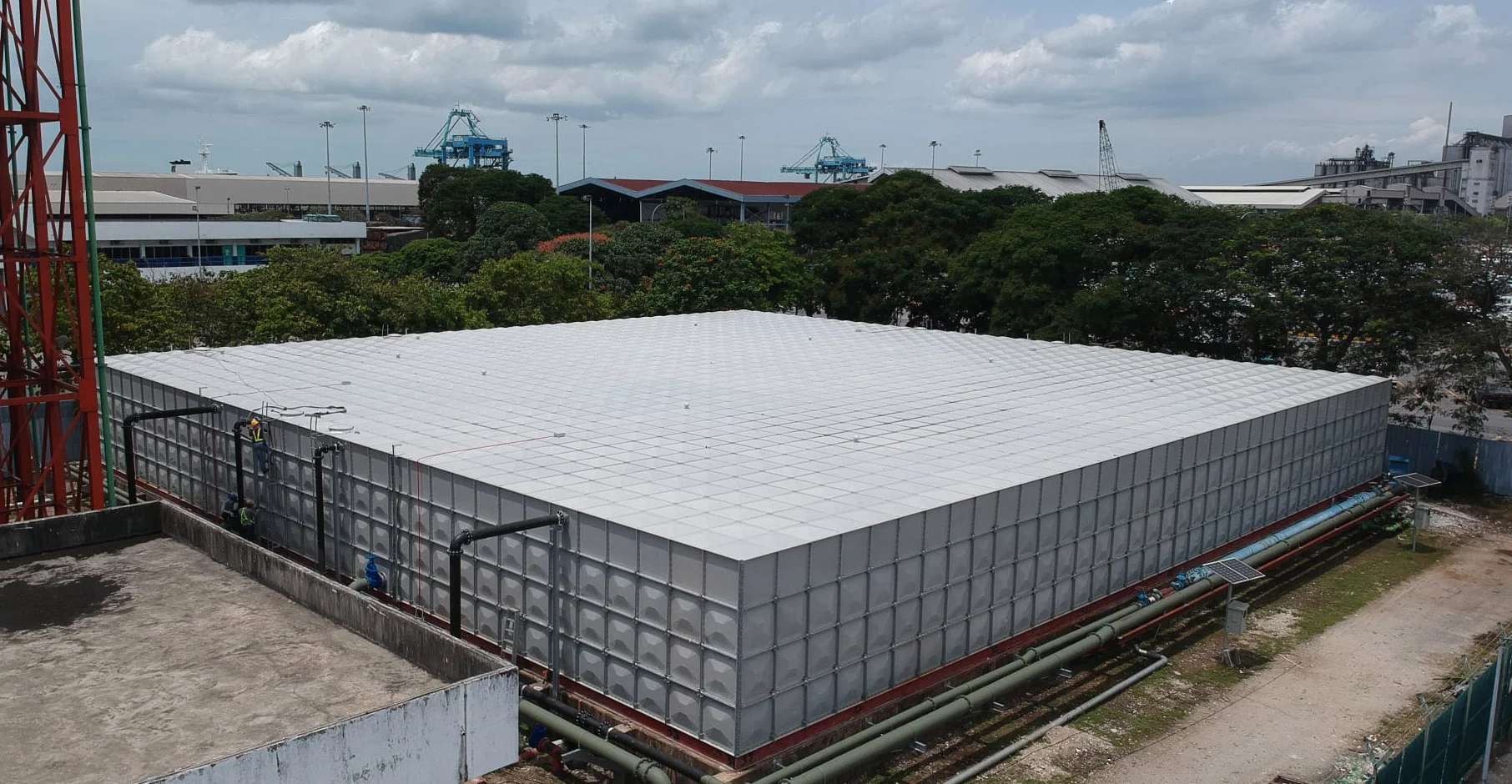In the evolving landscape of water infrastructure, SMC water tanks (Sheet Molding Compound water tanks) have emerged as a high-strength, hygienic, and modular alternative to traditional steel or concrete storage systems. As industries and municipalities worldwide prioritize sustainable, cost-effective, and long-lasting water storage solutions, SMC technology offers a transformative leap in performance and design flexibility.
SMC is a fiber-reinforced thermosetting material made primarily from polyester resin, glass fiber reinforcement, and various fillers and additives. It’s originally developed for aerospace and automotive applications—where strength-to-weight ratio is critical—and is now being widely adopted in civil infrastructure, particularly for potable water storage.
Unlike steel or concrete tanks, SMC tanks are modular, lightweight, and resistant to a wide range of environmental stresses, including UV radiation, humidity, saline conditions, and microbial activity.
While steel and concrete have long dominated large-scale water tank construction, their inherent limitations—such as corrosion, weight, and maintenance costs—are becoming increasingly problematic. SMC addresses these shortcomings with a set of unique engineering properties:
SMC panels exhibit excellent tensile and flexural strength. These tanks can easily withstand seismic shocks, internal water pressure, and temperature fluctuations from -40°C to 80°C without structural deformation or cracking.
Traditional tanks, especially in coastal or industrial environments, suffer corrosion from salt air or chemical contaminants. SMC tanks, by contrast, are inherently non-corrosive, making them ideal for marine installations, chemical plants, or high-humidity areas.
SMC’s inert surface inhibits algae, fungal, or bacterial growth. The food-grade gel coat layer on internal panels ensures that potable water quality remains uncompromised, complying with WHO and NSF/ANSI 61 standards.
Thanks to their low thermal conductivity, SMC tanks minimize internal water temperature fluctuations, reducing the likelihood of microbial proliferation and extending the shelf life of stored water.
Each panel is lightweight for manual handling, yet structurally strong enough to support large volumes. This quality dramatically reduces transportation and on-site assembly costs, especially in remote or hard-to-access areas.

SMC water tanks are not limited to residential or municipal use. Their flexibility in design and performance makes them suitable for:
Rural and urban potable water systems
Rainwater harvesting infrastructure
Industrial process water or greywater systems
Fire protection reserves
Agricultural irrigation reservoirs
Emergency and military field operations
Hospital and healthcare backup water supply
Their modular architecture allows engineers to scale tanks from 1,000 liters to over 5,000,000 liters without compromising structural integrity or performance.
One of the most attractive features of SMC tanks is their ease of transport and installation. Panels are flat-packed, reducing shipping volume by up to 70% compared to welded tanks. On-site assembly requires no heavy lifting equipment or welding, and can typically be completed within days—even on uneven terrain.
Over a 20-year lifecycle, SMC tanks typically incur 60–70% less maintenance cost compared to metal or RCC tanks, thanks to their inert chemical nature and robust fatigue resistance. Moreover, their ease of cleaning (no rust, no scaling) contributes to better operational efficiency in water treatment plants or storage facilities.
Modern advancements have further enhanced SMC’s role in water storage:
Integrated insulation layers for temperature-sensitive applications.
Smart sensor embedding for real-time monitoring of volume, leaks, or structural health.
Modular panel redesign to support vertical expansion in space-constrained areas.
Hybrid tank models that integrate SMC with internal steel reinforcements for ultra-high-pressure use cases.
Companies are also leveraging finite element analysis (FEA) during design stages to simulate load-bearing capacity and optimize tank configurations under extreme conditions.
In line with global ESG mandates, SMC water tanks contribute to low-carbon construction by:
Eliminating corrosion-related waste and coatings.
Reducing heavy transport emissions due to lightweight design.
Offering recyclable end-of-life disposal or repurposing of panels.
Combined with rainwater harvesting or greywater recycling, SMC tanks support sustainable water infrastructure goals for cities and industries alike.
As the demand for safe, efficient, and scalable water storage grows globally, SMC water tanks represent the next generation of infrastructure-ready solutions. They blend the best of material innovation, modular engineering, and environmental responsibility, making them the go-to choice for modern construction and utilities.
For engineers, project managers, and water authorities looking for high-strength, low-maintenance, and future-ready water storage, SMC tanks are more than a trend—they're a technological leap forward.
Experience the brand Trusted by Renowned Companies across the GLOBE.

Pipeco stands at the forefront of the market, recognized as a premier manufacturer, supplier, and exporter specializing in top-tier GRP water tanks, stainless steel water tanks, and SMC manhole covers, FRP Water Tank, Fiberglass Tank, SMC Water Tank committed to delivering unparalleled quality and excellence.